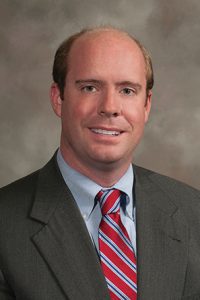Tax credit proposed for retailers of ethanol blended fuel
Retailers could receive a tax credit for each gallon they sell of a certain ethanol-gasoline blend under a bill heard by the Revenue Committee Feb. 3.

Under LB215, introduced by Omaha Sen. Burke Harr, retailers would be eligible for a 5-cent tax credit on each gallon of E-15 sold in the previous year. E-15 is blended gasoline that is 15 percent ethanol by volume.
Total credits would be limited to $1 million per year.
Harr said most consumers do not know what E-15 is or that the EPA has approved the fuel for cars built in 2001 and later. The proposed credit would allow retailers to reduce the price of E-15, he said, making it more attractive to consumers and boosting Nebraska’s ethanol industry.
“Renewable fuels have been a great thing for Nebraska,” Harr said, “and E-15 is the key to continuing the success of the industry.”
Todd Sneller, administrator of the Nebraska Ethanol Board, testified in support of the bill. He said the tax credit would help retailers offset the cost of upgrading their fuel tanks and dispensers to sell E-15, giving drivers more fuel choices at the pump and benefitting Nebraska’s economy.
“Consumers that use this product are using more ethanol produced in the state of Nebraska and less gasoline that comes in from outside of the state,” he said.
Charlie Bosselman, president of Bosselman Enterprises, also spoke in support of the bill. He said his company has spent approximately $3.5 million on infrastructure upgrades to sell blended ethanol fuels like E-15 at its convenience stores. The 5-cent tax credit would allow the company to sell E-15 for 10 cents less than E-10, Bosselman said.
“Hopefully, if I did that I could drive more business into my stores, I could pass on better savings to my customers [and] we could pump more ethanol in the state of Nebraska,” he said.
Joe Kohout, representing the American Petroleum Institute, opposed the bill, saying it would provide a government incentive for a product that is not ready for the market. He said the average vehicle in the U.S. is more than 11 years old and is not certified or warranted to run on higher ethanol blend fuels like E-15.
“[E-15] is incompatible with … the vast majority of the existing gasoline retail distribution system, which would require enormous cost to upgrade,” he said.
Kathy Siefken, executive director of the Nebraska Grocery Industry Association, also spoke against the bill. She said the association’s rural members are smaller businesses that do not have equipment for holding or pumping higher ethanol blend fuels. Demand for such fuels is low, she added.
The committee took no immediate action on the bill.

